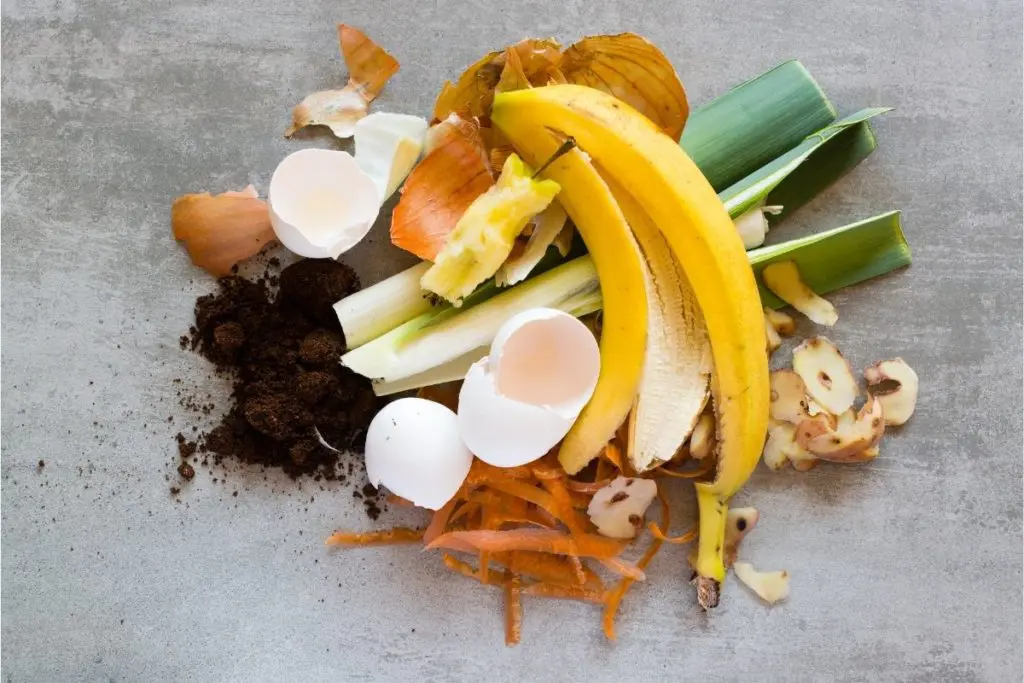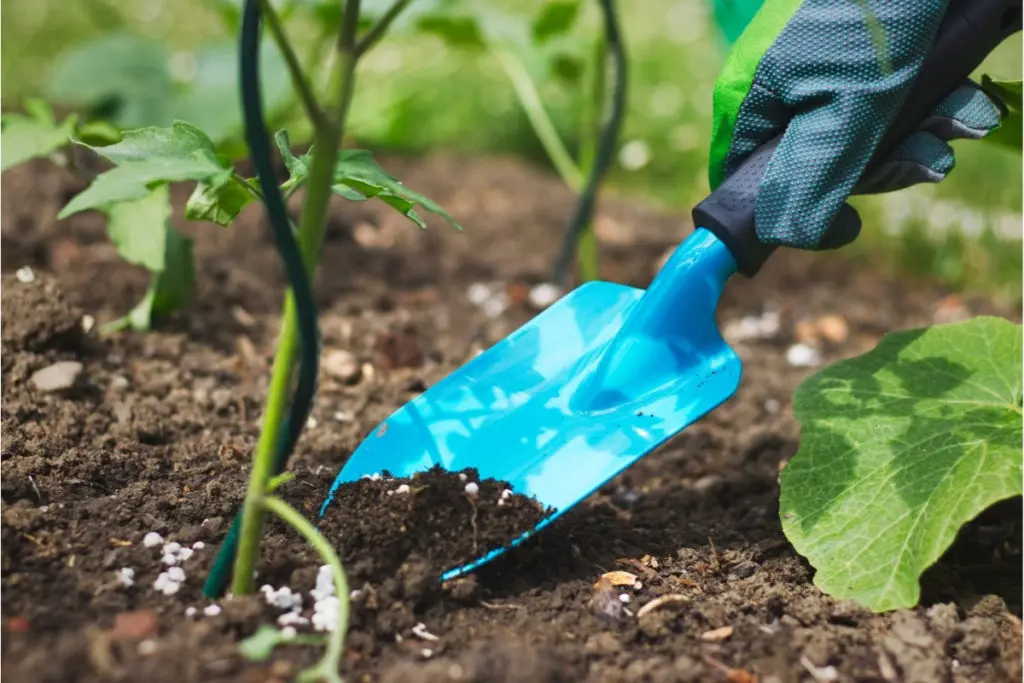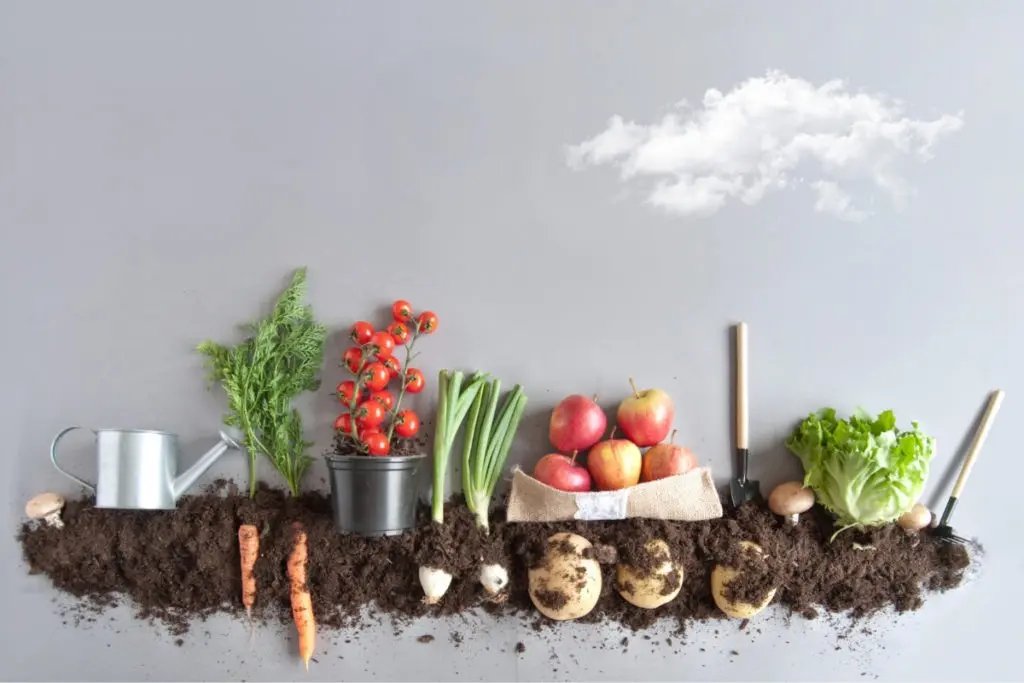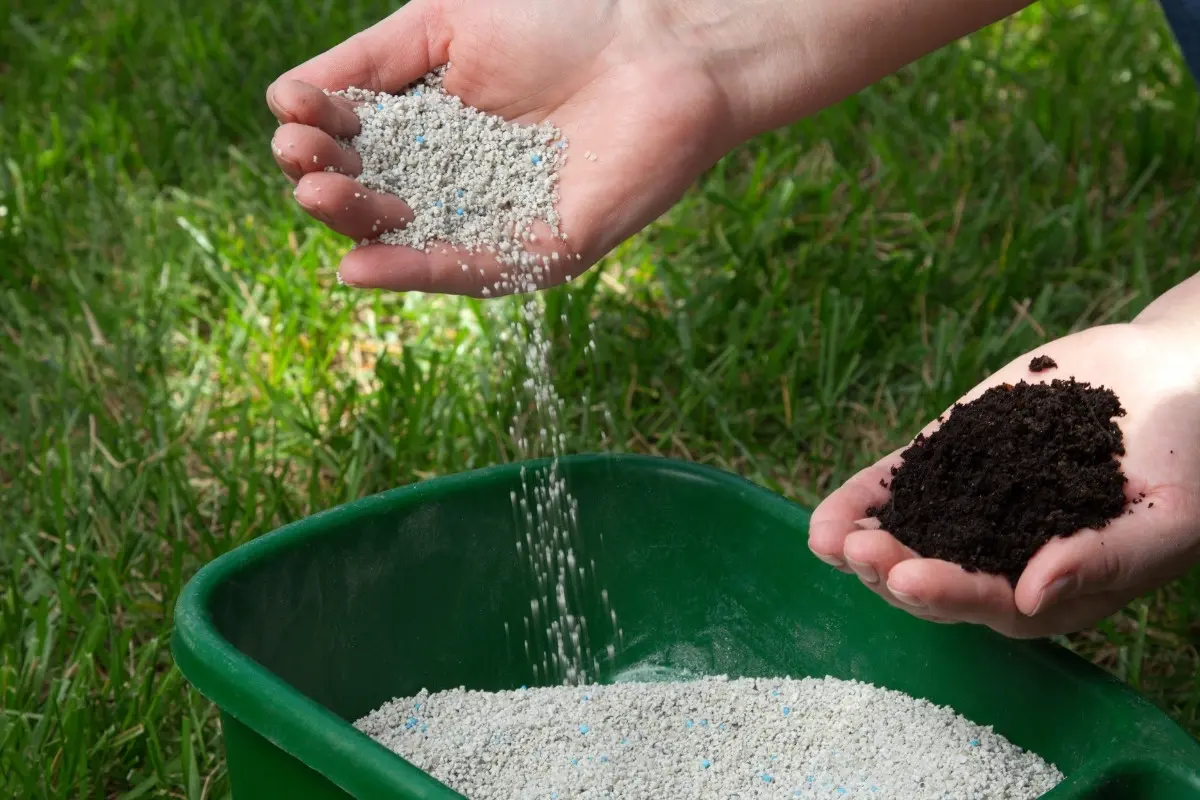Ever find yourself at a garden or home improvement store, staring down an impossibly long aisle of fertilizers, soil additives, compost and who knows what else — and feeling totally overwhelmed about where to start? Comparing compost vs. fertilizer is no easy task.
There are so many questions! Like, do I need compost, fertilizer, or maybe both? What does each do, exactly? How do I pick one that is nontoxic for my pets or children?
Worry not, we’re here to help you identify all the pros and cons of compost and fertilizers. Whether you want to use compost vs. fertilizer depends on what you want to use it for, and we’ll help you figure that out, too.
So let’s take a closer look at compost and fertilizer: what they do, how they work and more.
Comparison Chart: Summary
Here’s a quick summary of compost vs. organic fertilizer and which categories they excel at.
| Compost | Organic Fertilizer | |
| Effectiveness | X | X |
| Price | X | |
| Eco-Friendliness | X | |
| Lawn | X | |
| Gardens | X | X |
Compost vs. Fertilizer: Which to Use
Before we break down the pros and cons of compost and fertilizer, let’s take a minute to identify what each does and how they work. To figure out which one to use, first ask yourself: what am I trying to do for my plants?
Pro Tip
If you want to improve the overall health of your soil, increase beneficial microbes, and give your plants a sustained and slow-release dose of micronutrients, compost is a good choice.
If you want to give your plants a direct and immediate dose of concentrated nutrition, a good organic fertilizer will serve you well.
Simply put: compost feeds soil, while fertilizer feeds plants. But this is also just a rule of thumb. If you want to know which is better for lawns, is less expensive, or better for, say, roses, read on for a more specific breakdown of compost vs. fertilizer.
What is Compost?
Compost starts out a mixture of things like plant waste, kitchen scraps, wood chips, or sometimes manure. As it decomposes, it transforms into a rich blend of organic matter, beneficial microbes, moisture, micronutrients, and more. Compost is prized by gardeners because of its powerful ability to improve soil health.
Compost does provide your plants with nutrition, but slowly over time, via the surrounding soil. Think of compost as a way of improving the whole environment around your plants. When you “build up” the soil that sustains your plants, you will make your garden more conducive for growth and more resistant to disease.

Types of Compost
There are many different types of compost, like compost tea, manure-based compost, or even vermicompost. Each has their advantages, but for the purpose of our comparison of compost vs. fertilizer, we’ll keep it simple.
When we’re talking about compost, we’re referring to the basic compost you can buy at the garden center, or homemade compost.
Compost Pros
- Rich in micronutrients
- Contains beneficial microbes and fungi
- Does not wash away or contribute to runoff
- Gentle; won’t “burn” plants with an excess of nutrition
- Finished compost is odorless
- Helps prevent erosion and soil compaction
- Aids in soil moisture retention
- Helps prevent plant diseases and pest infestations
- Making your own compost reduces waste and greenhouse gasses
- Relatively cheap to buy; free to make yourself
- Can help fertilizer settle longer and be more effective
Compost Cons
- Can be time-consuming to make
- Lacking in concentrated macronutrients
- Can get costly if you’re buying compost at the store
- Doesn’t store as well as fertilizer
What is Fertilizer?
Fertilizer is a blend of organic or inorganic substances for directly feeding plants with instantly accessible nutrients.
Most fertilizers have an NPK Fertilizer Analysis, which is the formula’s ratio of nitrogen(N), phosphorus(P), and potassium(K). This ratio can be quite different depending on the specific plant nutrients required. In general, nitrogen is the basic building block for leaf and grass growth. Phosphorus supports roots, fruits and flowers, while potassium boosts strong roots and stems.

Types of Fertilizer
For our purposes, we’ll be looking at compost vs organic fertilizer. We don’t recommend synthetic fertilizers because they disperse too quickly, kill beneficial microbes in soil, are harmful to produce, and have toxic effects on waterways, animals, and the overall environment.
Organic fertilizer is derived from natural sources and does not pose a threat to health in the same way as synthetic fertilizer. Organic fertilizers deliver a quick and accessible dose of nutrients directly to plants. All fertilizers dissipate faster than compost, but there are slow release formulas to help counteract that tendency, such as pellet or granular fertilizer.
Fertilizer Pros
- Faster results
- More visible greening and growth
- Customized for specific plants or deficiencies
- Nutrients instantly available for plants
Fertilizer Cons
- All fertilizer can “burn” or overload plants with too many nutrients
- Can upset the microbial balance of soil
- Does not remain in the soil, requires reapplication
- Organic fertilizer often has a very pungent smell
- Organic fertilizer can attract dogs or pests
- Usually more expensive than compost
Breakdown: Compost vs. Organic Fertilizer
1
Compost vs. Fertilizer: Overall Effectiveness
Both compost and fertilizer work to promote healthy plant growth, but the trick is figuring out which is going to be most effective for your particular application. Which brings us back to our original question: what are you trying to do for your plants?
If you are concentrating on building a healthy foundation for your garden, then compost is probably going to be more effective overall. However, if you want to provide a quick and targeted nutritional boost to a specific plant, or to your lawn, an organic fertilizer will be where you’ll see the greatest efficacy.
Verdict: Compost is most effective for overall soil health, while fertilizer is more effective for targeted plant nutrition.
2
Compost vs. Fertilizer: Price
Compost comes out way ahead in the affordability category, because it’s free to make your own! Whether you use a compost tumbler, make your own compost tea, or produce it the old fashioned way using a pile in your yard, home composting is fun, easy, and free (or at least very nearly free, once you get the process established.)
That said, not all of us are in a position to make our own compost. If you don’t want to take the time, or create a dedicated space, there’s always the store-bought option. But even if you need to make a trip to your local nursery to pick up a bag, it should still likely run you a little less than a similarly-sized bag of fertilizer.
Using compost can also save you a little money over the long term, since it’s an investment in your soil health. The healthier your soil, the less likely you’ll need to add — or buy — anything else, like amendments or fertilizer.
Verdict: Compost is free to make and cheaper to buy than most fertilizers.
3
Compost vs. Fertilizer: Eco-Friendliness
At first glance, it may seem that as long as you’re using an organic fertilizer, there’s not really too much of a negative environmental impact. And compared to using a chemical fertilizer, that’s true. Synthetic fertilizers are environmentally damaging to produce, non-biodegradable, and they create salts, minerals and other chemicals that cause runoff and harm our waterways.
Organic fertilizers, on the other hand, are usually made up of natural, renewable ingredients that are safe to use around children and pets. They do vary wildly in their makeup, however, and some aren’t as “all natural” as others.
Which brings us back to compost, which is about as eco-friendly as it gets. When you choose compost, you’re responsible for diverting biodegradable waste from the landfill and reducing greenhouse gasses. If you take it to the next level by making and using your own compost, you’ll be creating a full, waste-free loop. Way to make Mother Nature proud.
Verdict: There are few things as eco-friendly as making (and using) your own compost.
4
Compost vs. Fertilizer: for Lawns
Lawn care is the category where an organic fertilizer comes out way ahead of good old all-purpose compost.
Generally, we want our lawns to be thick, healthy, and above all, green. This is where the comparatively large nitrogen content of an organic fertilizer comes into the equation. Many organic lawn fertilizers also provide a microbe or enzyme boost, as well as a little bit of phosphorus and potassium to round out the perfect meal for grass. Organic “lawn food” is specifically formulated to give grass the precise ratio that will strengthen roots and boost growth.
Using compost on your lawn is also perfectly acceptable, and can improve soil health. However, using compost on a lawn just won’t yield the same results as a specialty fertilizer.
Verdict: An organic lawn fertilizer won’t just improve the color of your grass, it might also make your neighbors green with envy.
5
Compost vs. Fertilizer: Gardening
The garden is a place where compost and organic fertilizer can work together in harmony to improve both overall soil quality and boost the roots, fruits, and flowers of plants.
Many gardeners live by the saying that successful gardening is much more about “growing” soil than it is growing plants. Even with the most consistent watering and direct sunlight — without fertile soil, your garden just won’t thrive.
Compost is by far the best tool to build up that soil. It not only does a great job of aerating the soil, it also keeps it moist and more resistant to disease and pest problems. But some plants need more than just healthy soil.
Take roses, for example. In a comparison of compost vs fertilizer for roses, you can understand the necessity for both. These beauties can be tricky to grow, and likely need the dual support of a compost amendment and a more nutrient-dense additive — a.k.a. fertilizer. Adding compost to your garden bed as you’re planting your roses will ensure robust soil health. Using a specially formulated fertilizer for roses will ensure your roses will get their basic nitrogen, phosphorus and potassium — plus the calcium, sulfur, copper, boron, iron, zinc, and manganese they also need to thrive.
Verdict: When it comes to gardening, compost and organic fertilizer can be used in concert to make your flowers and plants flourish.

Which is Best?
The answer is… both compost and fertilizer help produce healthy plants. But it makes sense to use each for specific applications, like lots of compost in your garden during spring planting, or using an organic lawn fertilizer for your lawn. You may also find that you need to use both simultaneously.
Our Key Takeaways:
- Avoid synthetic fertilizers, which are harmful for the environment. Stick with organic fertilizers that are made from natural ingredients and that don’t pose a threat to kids and pets.
- Lawn care is the primary category where an organic fertilizer comes out ahead of compost.
- Best for all-purpose use is homemade compost. This “black gold” remains one of the best gardening tools available, plus it’s inexpensive or free, and very environmentally friendly.
